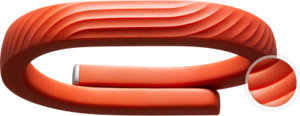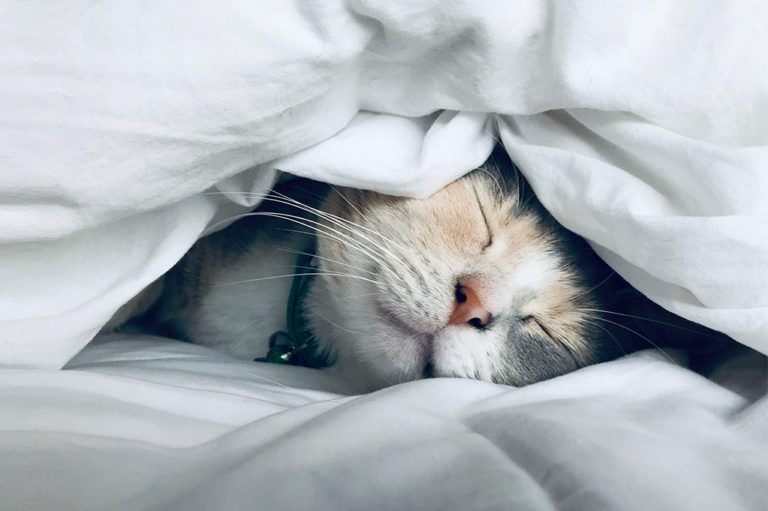4 Habit-Changing Things You Can Learn From a Fitness Tracker
Ever wonder what you can learn about yourself from a fitness tracker? You know, a FitBit, a Garmin, the Apple Watch, or even an app on your smartphone?
Here’s a thought:
It sees you when you’re sleeping. It knows when you’re awake. It even knows when you’ve been sitting too long, and how hard you’re working during a training session. And if you want to divulge your diet, it can tell you a lot about your eating habits, too.
1 in 5 Own a Fitness Tracker
It wasn’t that long ago that the only real way to track your activity was an old-school pedometer. One of those wear-it-on-your-belt devices that sometimes counted your steps. And that’s all it could do. But in today’s demand for digital connectivity, fitness trackers can do a lot more.
An estimated 1 in 5 people own a fitness tracker, and sales are on track to top $20 million in the next few years, according to >market research data.
Are You the Proud Owner of a Fitness Tracker?
Maybe you received one as a gift. Maybe you dropped some dough on one, thinking it might be the secret sauce to helping you finally get into shape.
Or maybe your company issued fitness trackers as part of its employee wellness program, like TransUnion did in Chicagoto get people to sit less and move more.
It’s not a bad idea.
If you want to lose weight, eat healthier, build muscle, or even exercise more consistently, a fitness tracker can be a great way to create accountability, measure your progress, and nudge you to be consistent.
Not Just a Glorified Wrist Watch
For the record, fitness trackers, aren’t just glorified wrist watches anymore. Now there’s glasses, ear pieces, running shoes, skin patches, clothing, and even ingestibles that can track and measure your every move. Seriously?
And there’s literally thousands of fitness tracker apps available for your smartphone, too. Some of the most popular include:
But what exactly can a fitness tracker tell you about your health and fitness? You might be surprised how much data your device or app has on you, and how it can help you.
![]()
4 Habit-Changing Things You Can Learn From a Fitness Tracker
Want to geek out on data to improve your health or chase down your fitness goals? You might not need to look any further than your fitness tracker or mobile app. Here’s how these tools can help you:
#1: Heart Rate
Hustle to get your heart rate up during exercise. Do it right, and it’s a great way to burn fat or build cardiovascular endurance. But it’s kind of hard to tell if you’re working hard enough, or going a little too crazy.
Some fitness trackers have built-in heart rate monitors, and other pair with a wearable strap that track your heart rate in real time, and track it from one training session to the next.
What’s an ideal heart rate for exercise?Here’s what the American Heart Association recommends.
#2: Calories Burned
If you’re chasing a weight loss or fat loss goal, the fastest route to get there is a combination of diet and exercise.
Simple math: 3,500 calories is equal to about a pound of fat. Burn 500 calories a day from exercise, and you could lose a pound in a week, if your diet is dialed in. A fitness tracker can estimate calories burned from a lifting session, treadmill workout, or run in the park.
Here’s another example. You’ve got marching orders from your trainer to eat 1,800 calories a day, along with macronutrient goals. But you end up going out, eating more than you planned, and want to try and make it up.
Start hustling, and your fitness tracker can tell you when you’ve burned off enough calories to settle the score with that slice of cheesecake.
#3: Steps Per Day
Ever wonder how many steps you take in a day?
If you’ve got a desk job, spend a lot of time on the road, or drive kids around town, you might not be moving enough. That kind of sedentary lifestyle will only get you so far, as in less than 5,000 steps per day.
Most people need to be more active than that to lose weight, maintain a healthy weight, and stay in shape. A number of recent studies, including one published in International Journal of Behavioral Nutrition and Physical Activity, point to 10,000 steps as a baseline goal to improve overall health.
Most fitness trackers tally the steps you take throughout the day. On most devices, you can even set reminders to help you be more active, take a walk, use the stairs, and to reach your daily steps goal.

#4: Sleep
Did you get your Zzzs? It might be one of the most overlooked factors to health, fitness, and weight loss, in a 24/7-always-on-the-go city. If you’re not getting enough sleep (7 to 8 hours is ideal for most people), you’re setting yourself up for a long list of health problems and risks for chronic disease.
In the short term, lack of sleep can cause a spike in ghrelin and drop in leptin, also called the hunger hormones. And it’s a recipe for hunger cravings and binge eating.
Lack of sleep can also cause an increase in cortisol levels, the stress hormone that can interfere with metabolism, promote fat storage, and stall your efforts to lose weight or get lean. In the long run, lack of sleep has been linked to diabetes, heart disease, high blood pressure, obesity, even depression.
Want to improve your sleep habits? A fitness tracker makes it easy to get a baseline on your sleep habits, and track how many hours of sleep you’re getting each night. With that data, you can work on improving your sleep habits by doing things like:
- Go to bed at the same time every night (even on weekends)
- Limit caffeine in the afternoon
- Manage stress in healthy ways
- Avoid screen time before bed
- Create a sleep routine
A fitness tracker can help you understand your sleep habits, and make choices to get 7 to 8 hours of sleep more consistently.
Tap Into Fitness Tracker Data to Improve Your Health
Just because you’ve got a fitness tracker or mobile app, doesn’t mean you’re magically going to make better decisions about diet and exercise.
But if you tap into the data, track your progress, and then make changes to your workouts, your diet, and your lifestyle, you’ll be headed in the right direction.
Looking for a diet or training plan to help you get results? Let’s discuss on Facebook.






